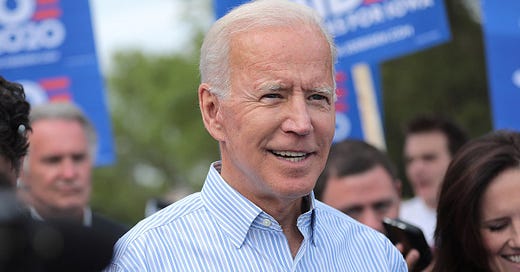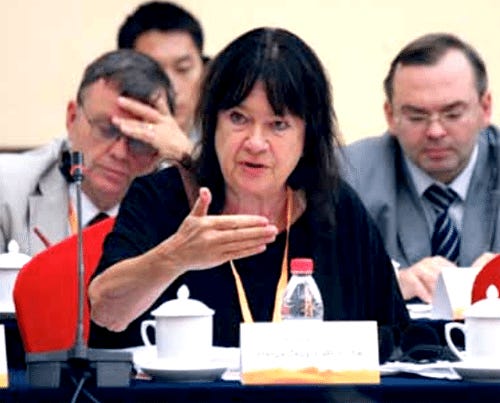Today I am providing again my English translation of 2 articles, originally in Italian. (All emphasis mine in both).
The first one is a short article published on Movisol.org two days ago, Wednesday 11th December 2024, summing up recent events in just a few words:
A world in turmoil
The dramatic upheaval of the last few days in Syria is not an expression of dynamics within that nation, but the result of external pressure, intervention and interference. These reflect a world in turmoil, with a dying world order, struggling to regain a hegemony that has been irretrievably lost. Southwest Asia is plunged into uncertainty as the US strengthens its positions and Israel, with Washington's blessing, also bombs Syria.
Whoever controls the Biden administration has just decided to supply Ukraine with almost $1 billion worth of weapons, while Rear Admiral Thomas Buchanan, spokesman for the Pentagon's Strategic Command, seraphically states (20 November) that the use of nuclear weapons against Russia is no longer unthinkable, provided the US maintains sufficient “reserve capacity” to deter future enemies.
In Europe, the EU is pursuing the same blind policy of “after me, the flood”. As for the much vaunted democracy, in Romania we see that when election results are not to the liking of the ruler, they are simply annulled.
The Schiller Institute's international (online) conference, held on 7 and 8 December, offered the intellectual tools to build an international resistance movement in this global showdown. The full conference is available on YouTube at https://www.youtube.com/channel/UCVNxjVDDq9ALxFuCKMx8HQg.
The second article was published on Movisol.org yesterday, Thursday 12th December 2024, and it summarizes the first day of the Schiller Institute's conference that had been held on 7-8 December 2024:
Dialogue at the Schiller Institute Forum Breaks the Blocks
“Let us reject the idea that relations between nations are a zero-sum game, where if one wins, the other loses”, was the appeal with which Helga Zepp-LaRouche gave the Launch to the Schiller Institute's two-day conference on 7-8 December [2024]. “We are human beings, not wild animals! The way out of this existential crisis is actually very simple: we have to convince the nations of the collective West to abandon their Eurocentric arrogance and instead cooperate with the nations of the global South, who make up 85% of the human population, in creating a new and just world economic order, based on the Five Principles of Peaceful Coexistence and the UN Charter. To do this, we must definitively abandon all the oligarchic axioms of our thinking and replace them with the philosophy of coincidentia oppositorum, the coincidence of opposites of Niccolò Cusano, which allows us to think of humanity as the One superior, which is of a higher power than the Many”.
The founder of SI [Schiller Institute] was followed by Dmitri Trenin, a member of Russia's Foreign Policy and Defence Council and former director of the Carnegie Moscow Center, who agreed with Zepp-LaRouche's remarks. According to Trenin, the deterrence that “kept the cold war cold” no longer works and therefore “the second cold war” is a misnomer. In his view, “the most important thing” today would be for US leaders to realise “the dangers of imperial overreach” and put the interests of US national security above those of “the hegemonic security of the global system they lead”. Despite the enormous resources expended on the war in Ukraine, he stressed, “Russia is prioritising economic, technological and intellectual development”. In this, Russian leaders have learnt lessons from the Soviet past, he stressed, which others should not ignore.
Donald Ramotar, former president of Guyana, accused the West of trying “since the early 1990s” to make Russia weak and powerless: “This fight has created a frightening situation” and made the imminent danger of a nuclear war real. He called on the West to work with the BRICS to end poverty within a generation.
Ján Čarnogurský, former Prime Minister of Slovakia (1991-92), recalled that today the majority of Slovaks do not consider Russia an enemy. Those who claim that if Ukraine loses the war, Russia “will move further west” are pure propaganda. The experience of the Joe Biden presidency teaches that when the United States “is governed not by an elected president, but by a kind of ‘deep state’, it is difficult to enter into negotiations with such elites”.
For Ambassador Chas W. Freeman Jr., former US Under Secretary of Defence for International Security Affairs, Washington's recent behaviour “has cost the United States its moral authority and turned much of the world against us”. Arms control treaties expire and are not renewed, and “there are now no functioning mechanisms to stop escalation between nuclear-armed belligerents”. Faced with this sorry state of affairs, diplomats must step up to resolve conflicts, starting with Ukraine. There is no doubt that the population in Russian-occupied areas welcomes the Russian presence, but Moscow should consider holding referendums with international supervision in the areas it has occupied.
Prof. Zhang Weiwei, Professor of International Relations at Fudan University, China, noted that post-Cold War optimism has dissipated in Europe and made way for a “lose-lose” worldview, in contrast to Asia's “win-win” (see below).
Scott Ritter, former UN weapons inspector in Iraq, was in Washington for an important conference at the National Press Club entitled “No Nuclear War”, but he made sure to prepare a video for the Schiller Institute conference. Today's situation is more dangerous than the Cuban missile crisis, he said, because the destructive power and vectors to unleash it are far greater. “Back then, there was direct communication between the US and the USSR, with a viable and meaningful back channel. Today, there is no communication”. Ritter urged an American de-escalation from Ukraine, withdrawing the ATACMS from the battlefield.
Colonel Larry Wilkerson, former chief of staff to US Secretary of State Colin Powell, shared Freeman's assessment of the “perfidy of empire”. We are witnessing a colossal shift in the world back to the centrality that Asia had three thousand years ago. If America does not stop fighting this inexorable change, it will bring us to the threshold of destruction. A conflict between China and the US over Taiwan would be nuclear.
Hossein Mousavian, former Iranian ambassador to Germany, outlined four possible scenarios that the Trump administration will face in its dealings with Tehran. In all these scenarios, the choice of peaceful nuclear power is imperative for Iran. Mousavian supported development initiatives such as the Schller Institute's “Oasis Plan”.
An hour of lively debate followed the speeches, allowing the speakers to further develop their thinking and dialogue with each other and the participants. In the next issue, we will report on the second session, dedicated to the Great Projects the world needs, particularly the Global South, to ensure economic and social development, and the two sessions on Sunday 8th December [2024], dedicated to the scientific drivers of the physical economy and the rebirth of the beauty of the world's cultures.





